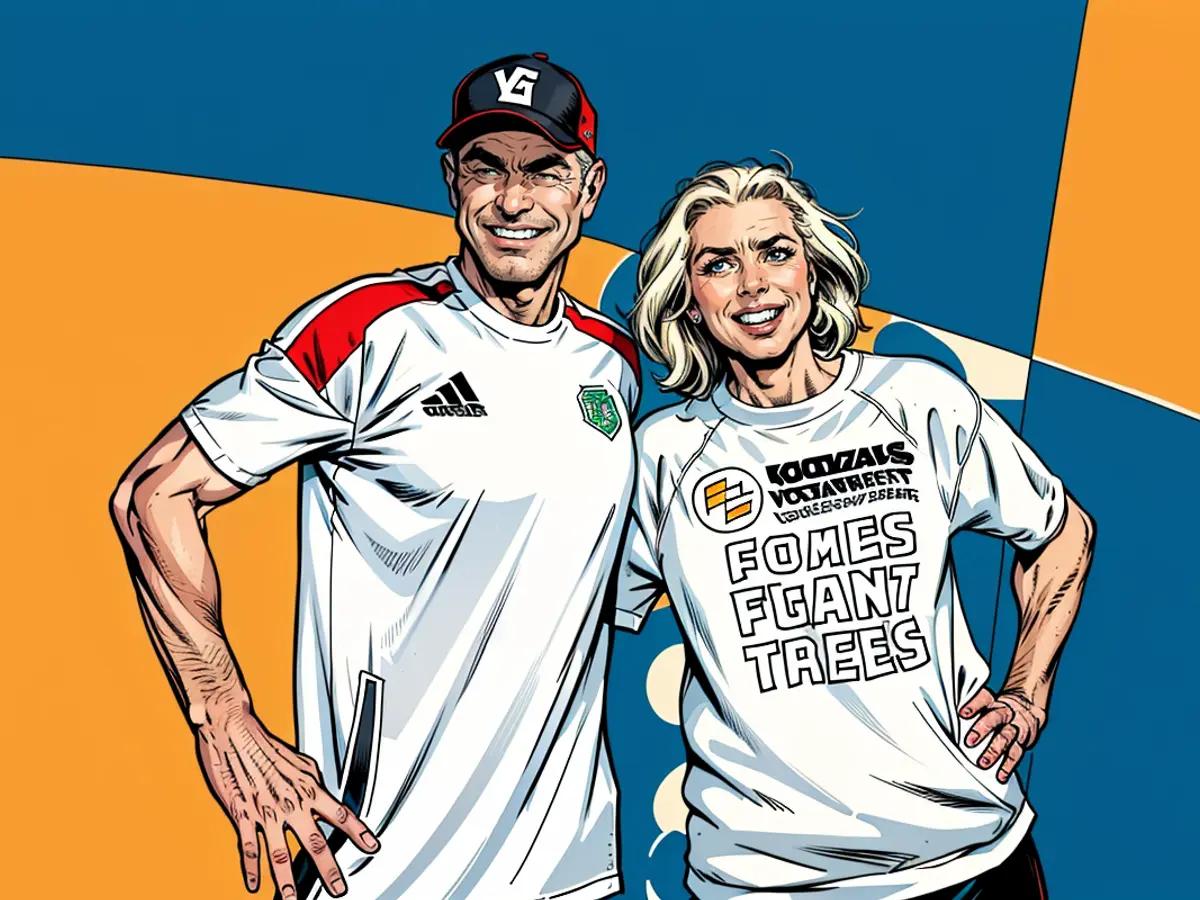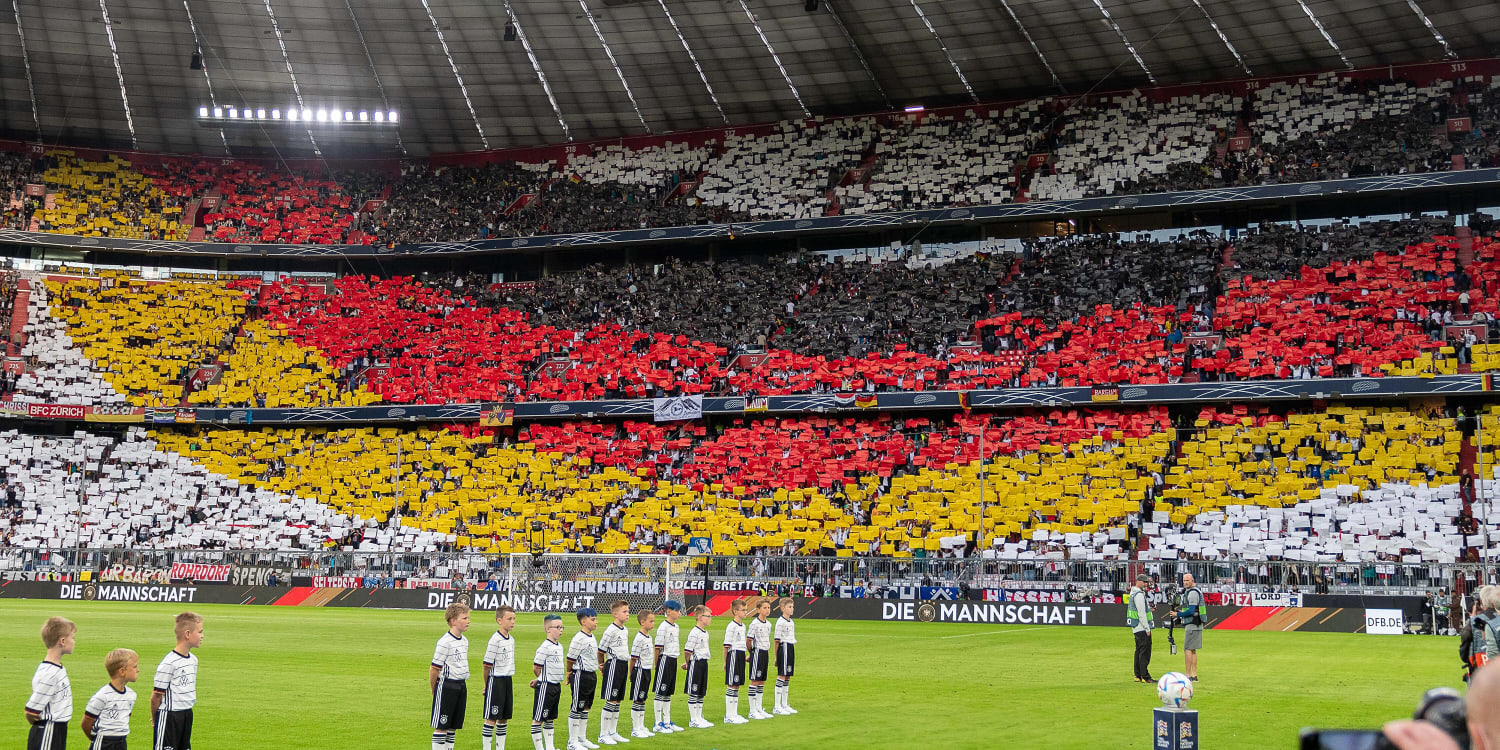Millions of soccer supporters from around the globe will descend on Germany in late spring to attend the 2024 European Football Championship.
A quadrennial affair, the Euros are one of the sport’s most beloved events, and the German government expects this year’s tournament to draw 2.7 million fans to stadiums and another 12 million to public viewing events across the 10 host cities — the smallest of which, Gelsenkirchen, has a population of just over 264,000.
Hosting such mega-events presents a slew of logistical challenges and countless risks, as evidenced by recent terror threats and a resurgence of an old scourge: soccer hooligans.
Following the terror attack on a concert hall in Moscow in March — for which ISIS claimed responsibility — the German government announced increased border controls.
A media outlet linked to ISIS threatened attacks ahead of quarterfinal matches for a separate European soccer tournament last week, emphasizing the need for preparedness ahead of the start of the Euros on June 14, when the hosts play Scotland in Munich.
WATCH | Is Vancouver ready to accommodate the 2026 World Cup?
Vancouver is set to host seven soccer games when the 2026 FIFA World Cup comes to town. Our Laurence Watt dives into whether Vancouver is ready to accommodate visitors flying in for the event.
“The terrorism threat has changed,” said David Holley, who worked as a security consultant for the BBC the last time Germany hosted an event of this size, the 2006 World Cup.
“We do know that terrorist groups are now operating in Europe. They have sleeper cells… So it is a much higher, more visible threat this time round.”
Anticipating threats
An exhibition match between the French and German national soccer teams was the target for a suicide bomber in Paris in 2015, when a series of co-ordinated attacks were carried out across the French capital, resulting in the death of 130 people.
Security at the Stade de France, where the game was being played, detected the attacker’s bomb belt and stopped him from entering the stadium just as he detonated the device.

Holley, who was once a lieutenant-colonel in the British Army, says his work now consists of looking after journalists when they go into “hostile or fragile environments,” which he says the Euros has the potential to be.
“There’s going to be so many targets, it’s not just the stadiums … There are going to be thousands of fans in fan zones, market squares, wherever there’s an open café or pub or restaurants, piazzas, those types of places. How do you protect the population?”
The tournament organizers, the Union of European Football Associations (UEFA), told CBC News in an email that “security at EURO 2024 is a top priority for UEFA and the German authorities … We are confident that all necessary measures will be taken.”

Holley says controlled environments or “hard targets” like the stadium where a match is taking place are much more difficult to attack, because security in and out of the grounds will be so strict.
“Soft targets,” however, will be much more vulnerable because people don’t need tickets to the games to join in the atmosphere, which makes them much more susceptible to risk.
High risk of fan violence
The potential for threats like terrorism are always anticipated, even if they’re not a guarantee. Whereas the challenges that arise from large quantities of people coming together is pretty much an inevitability, says Martin Lodge, co-director of the Centre for Analysis of Risk and Regulation in London.
“What you’re dealing with is largely a bunch of drunken people basically transporting themselves around a country,” he said.

The 2022 World Cup in Qatar saw a strict code of conduct forbidding public drunkenness and limiting access to alcohol, a World Cup first. Afterwards, the U.K. Football Policing Unit praised the “exemplary” behaviour of English and Welsh fans attending the tournament, remarking that there had been zero police incidents and arrests, another first, which they attributed largely to Qatar’s rules on drinking.
The U.K.’s Foreign, Commonwealth and Development Office (FCDO) issued guidance last month urging the anticipated half a million Britons travelling to the Euros to “drink responsibly.”
The FCDO stated that those who drink too much might not be let into the stadium, and further warned travelling fans about the strength of German beer compared to British beer.
According to U.K. charity Drinkware, the average strength of lager in the U.K. is around 4.6 per cent, but in Germany, beers can range from 4.5 per cent to as much as 7.0 per cent.

The concern surrounding alcohol consumption stems from the role it can play in spurring soccer-related violence, which has been on the rise in the U.K. Data released from the Home Office last year showed the number of arrests at soccer matches in England and Wales was the highest it’s been in nine years.
Hooliganism on the rise
Soccer-related violence has been studied for decades since its emergence in the 1970s, and can be linked to unemployment, economic inequality and alienation.
According to Italian-based sociologist Roland Benedikter, it has seen a surge across Europe due to “profound disruptions in almost every field of society.”

“Systemic crises are taking place simultaneously in politics, culture, religion, demography, technology and the economy,” writes Benedikter, citing increasingly split societies across Europe. The rise of globalization and wars in both the Middle East and Ukraine, as well as rising global temperatures, have dramatically impacted the way people are thinking about their future.
“Many people now feel insufficient, uncomfortable, insecure and therefore more aggressive. There is a sense of a ‘loss of control,'” Benedikter writes, citing the 2001 attacks on the World Trade Center in New York as the catalyst for a “global systemic shift.”
The mayhem that can ensue when angry, disenfranchised fans over-imbibe was on display at the last Euros, in 2021, when thousands of ticketless fans overturned barriers and went stampeding into Wembley Stadium in London.
A review of the incident concluded the terrifying siege was “a series of ‘near misses’ which could have led to significant injuries or even death.”
The event was especially sensitive given English soccer’s dark history with crowd control.
The Hillsborough disaster took place 35 years ago this week, in which 97 people were crushed to death at a game in Sheffield. This shifted the Football Association’s attitude toward safety and saw a number of new measures introduced, such as the replacement of standing terraces with seated stadiums.
Lodge says the “human factors” are the most important areas to focus on during major sporting events. That means ensuring emergency services, ticket-takers and security on site are as prepared as they can possibly be for any number of scenarios.

He said that because the 2006 World Cup in Germany was such a success, there are few lessons for the host nation to learn from that tournament.
“I think you could argue the problem is it went too well. You know, in that sense, there was very little crowd violence. Everyone was happy,” said Lodge.
“So it seems like a very different world from the present one.”




